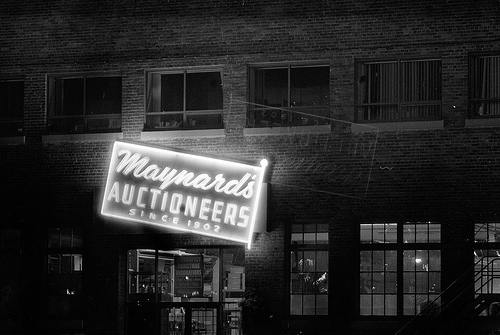Auction Stage III Bidding Concludes at $19.7 Billion

WASHINGTON—Stage three of the TV spectrum incentive auction has now concluded, with broadcasters seeking $40.3 billion for 108 MHz of spectrum, and wireless providers bidding $19.7 billion for the 80 MHz designated for sale. The forward auction portion of the third stage, which started this morning, appeared to conclude after a single round of bidding, as was the case in the second stage. (Indeed, the third stage forward auction did conclude after one round of bidding.)
“Bidding in the forward auction has concluded for stage three without meeting the final stage rule and without meeting the conditions to trigger an extended round. The incentive auction will continue with stage four at a lower clearing target,” the Federal Communications Commission said on its auction dashboard this morning.
The FCC said it expects to release a public notice this Friday, Dec. 9, announcing the clearing target and the time and date when stage four reverse auction bidding will start, with a current goal of starting it Tuesday, Dec. 13, 2016.
Depending on how many broadcasters elect to continue the process, the clearing target for stage four would be 84 MHz, or 70 MHz for wireless bidders in the form of paired, 5 MHz blocks, and 14 MHz for interference guard bands and some unlicensed usage.
Broadcaster sellers and wireless buyers have yet to reach middle ground in the auction, which commenced March 29, 2016. Broadcasters sought $86 billion in stage one for 126 MHz. Wireless bidders came back with $22.5 billion for 100 MHz after 11 days and 27 rounds of bidding.
In stage two, broadcasters sought $54.6 billion for 114 MHz. Wireless bidders came back at $21.5 billion for 90 MHz after a single, two-hour round of bidding on Oct. 19.
Forward auction bids must fulfill the criteria of the final stage rule for the auction to close. These criteria include raising enough revenue to pay broadcaster ask, plus cover a $1.75 billion broadcaster relocation fund as well as the administrative cost of the auction itself—around $250,000. The bids also must meet a reserve, or benchmark, price set to reflect what the commission considers a fair market price of $1.25 per person per MHz, in the top 40 wireless licensing areas. The benchmark was achieved in all three stages.
Forward auction bidding in all three stages concluded as demand came to equal supply in those top 40 areas before broadcaster ask plus costs were met. The latest results evoked a fiery statement from Preston Padden, former executive director of a now-disbanded sellers’ coalition, who at one point speculated the bids might reach as high as $80 billion:
“This is not an auction. It is a joke and an abuse of the broadcasters, the FCC and the public who will be put through a disruptive repacking process that increasingly looks unjustified. The question is why the carriers lobbied so hard for a statute to authorize an auction of spectrum they don’t want. The carriers now have twice walked away from blocks of spectrum they told Congress was ‘vital’ and for which they predicted bidding as high as $58 billion. (CTIA Whitepaper Feb. 15, 2011) ” (Editor’s note: Mr. Padden followed up with an email noting that the amount cited was $48 billion, not $58 billion.)
SEeo more TV Technology coverage at our spectrum auction silo.
Get the TV Tech Newsletter
The professional video industry's #1 source for news, trends and product and tech information. Sign up below.
